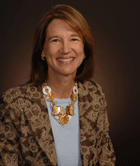Principal Investigator: Carolyn Warner, Arizona State University
World-wide charitable giving depends upon the generosity of the major world religions. Despite the fact that many religions emphasize the virtues of charity, we don’t understand exactly what causes their adherents and organizations to be generous. What specific religious beliefs and institutions promote generosity? Do these vary across religious traditions? Do religions promote generosity toward their own members as well as others, or do religions tend to favor their own? How, if at all, do taxation, social welfare arrangements and religion/state regulations affect the generosity of participants in different religions?
As major world religions with a growing share of the world’s population (approximately 1.1 billion Catholics and 1.5 billion Muslims), understanding the conditions that foster or hinder generosity among Catholics and Muslims is crucial.
This project will contribute significantly to the emerging science of generosity through comparative, collaborative and cross-disciplinary work. A team of political scientists and social and quantitative psychologists will carry out the investigation through large-scale, cross-national quantitative analyses of survey and other aggregate data, experiments conducted on site in two countries with university students and members of the general population, and case studies of mosque and parish communities in four European countries.
By combining these methods, our program of research gives serious, sustained attention to questions of religious influence on specific causal motives and propensities to generosity, and on the external contexts that may promote or hinder generosity. Furthermore, most studies of religious giving have focused on Christian religions, and the bulk of those on religions in the United States. This project expands the scope previous studies by taking Europe as its locus, focusing on Catholicism and Islam in Ireland, France, Italy, and Turkey, and by looking explicitly at generosity.
The intellectual merits of the project are multiple:
- It addresses the questions of the religious influences on motives and propensities to generosity, and of how socio-political structures promote or hinder generosity.
- It expands the scope of previous knowledge by focusing on Europe, and by including one Muslim dominant country.
- It develops and tests a series of hypotheses that enable us to assess the roles of religious community dynamics, religious discourse and state structural context in promoting or hindering the generosity of Muslims and Catholics.
- Its methodologies are structured specifically to understand the causal mechanisms that may enable religious community, discourse and state structural context to affect generosity.
- The project will likely advance the study of public goods provision and group cooperation in political science by giving sustained and systematic attention to the causal properties of Catholicism and Islam as producers of generous behavior; and
- By leveraging the contribution of various methodologies, this project will advance research on generosity in areas needing further study, and provide a fuller and more accurate specification than previous studies have of the causal mechanisms of generosity.




